| Vintage Pulp | Nov 9 2020 |

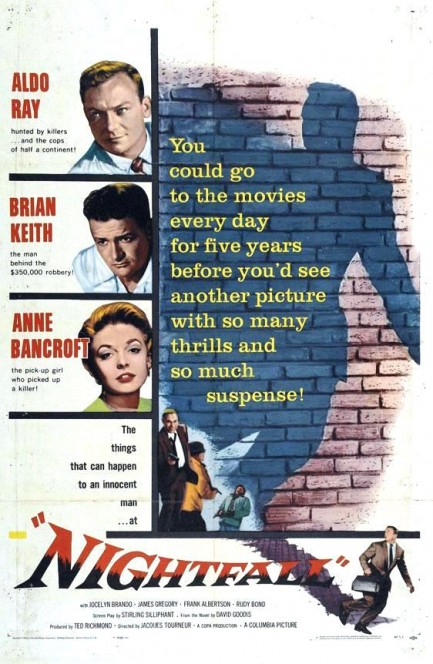
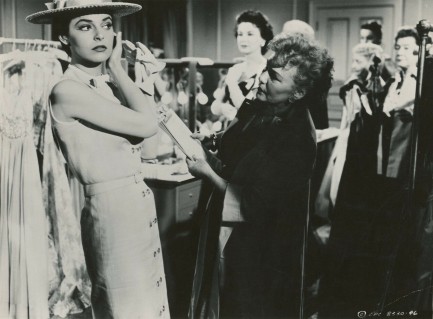
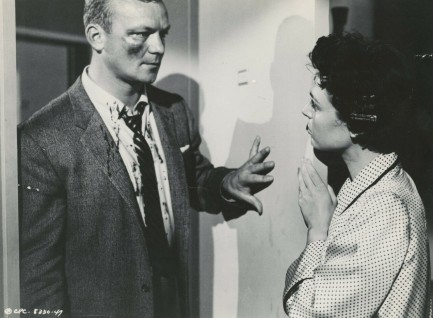
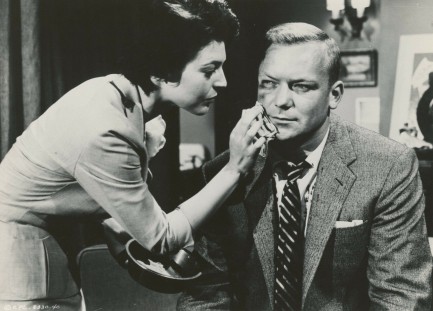
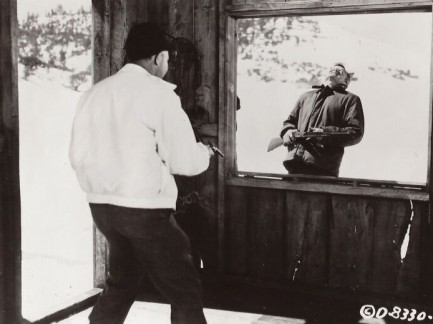
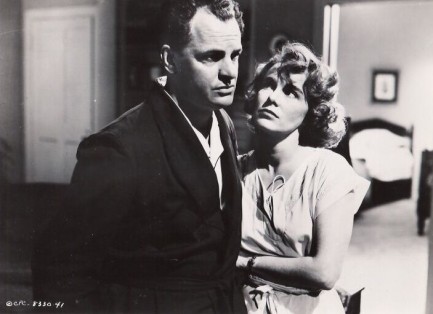
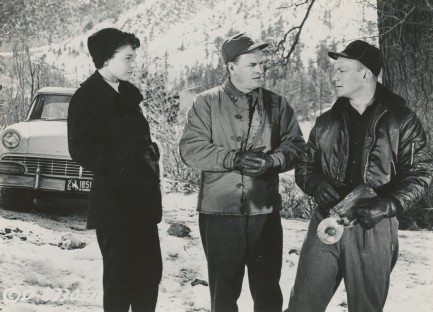
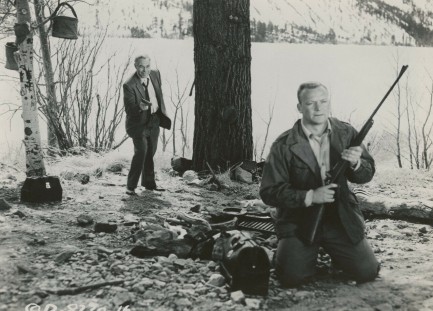
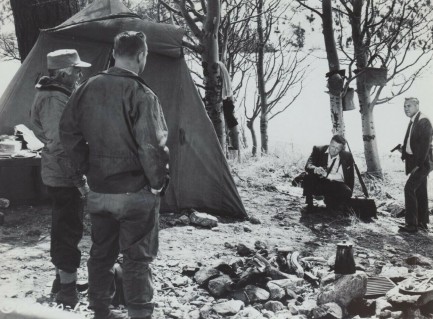
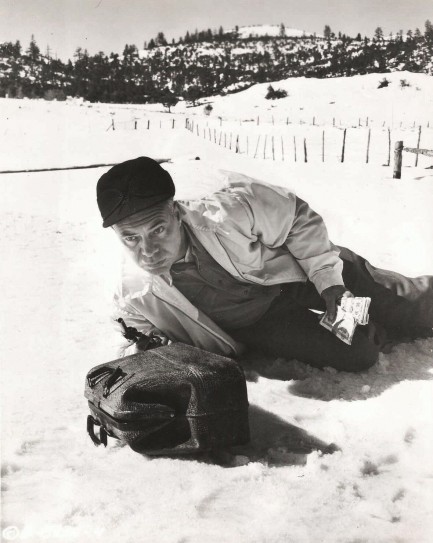
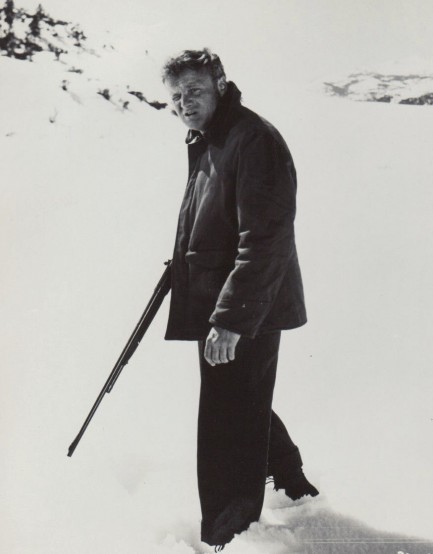
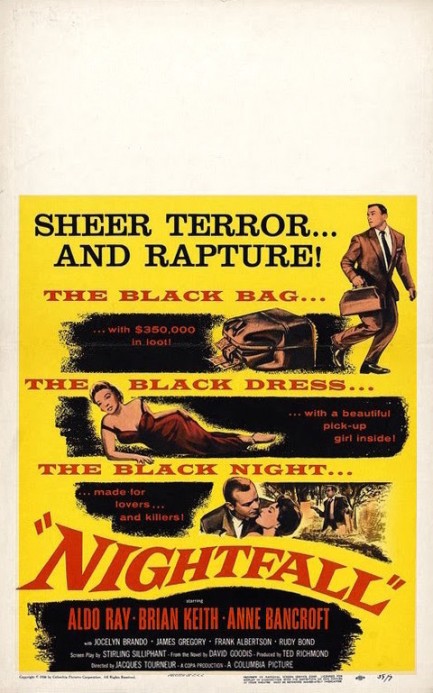
| Vintage Pulp | Dec 2 2019 |

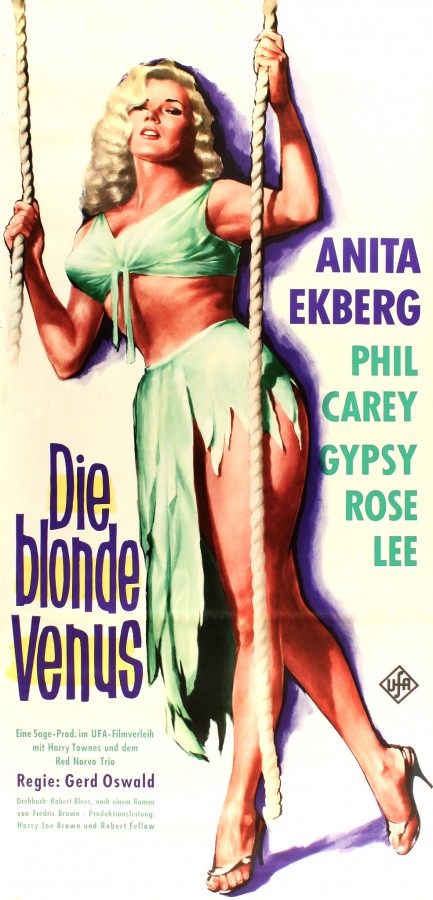
Anita Ekberg's film noir Screaming Mimi opened in West Germany today in 1960. We've had a look at one West German poster, but today we've decided to share another one. This version is similar to the U.S. promo, but the unusual color palette makes it seem like a completely different design. We think's it's really beautiful.
| Vintage Pulp | Dec 2 2018 |

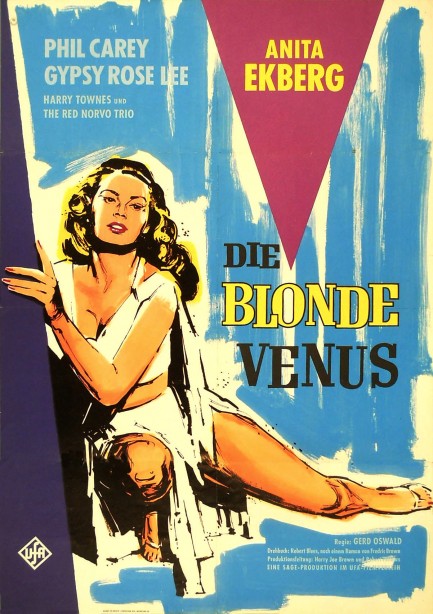
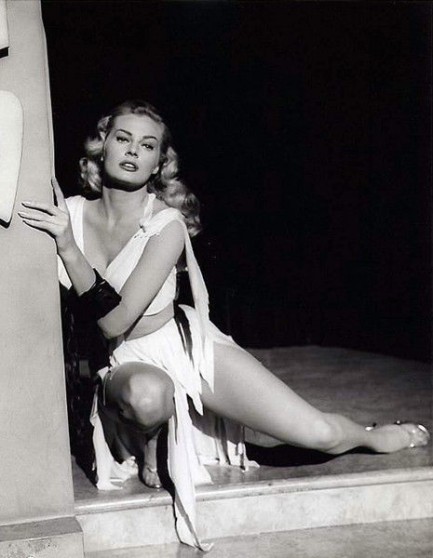
| Vintage Pulp | Jan 28 2016 |

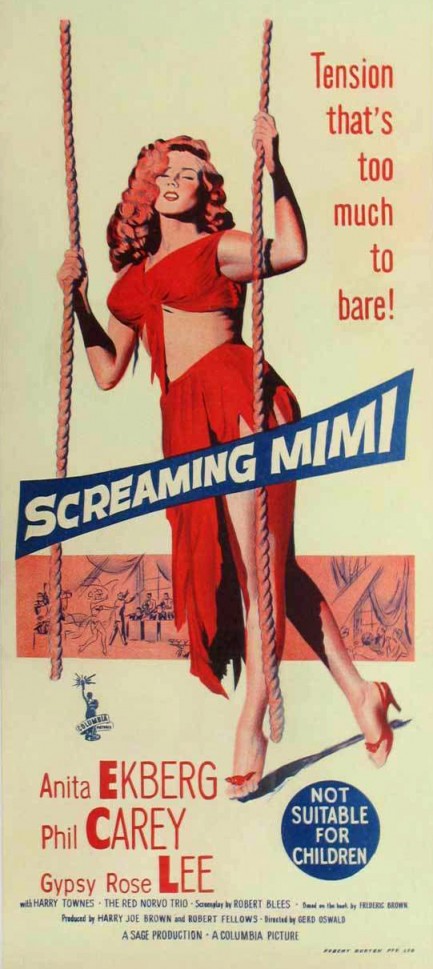
Based on a 1949 novel of the same name by Frederic Brown, Screaming Mimi stars Anita Ekberg as a traumatized burlesque dancer who can’t shake the memory of being attacked by a knife-wielding maniac. She’s committed to a mental institution, where her psychiatrist promptly falls in love with her and helps her escape and create a new identity. Now dancing at a club in Laguna Beach, California, she’s the hottest draw in the area and her former doctor is her lover and protector, but also smothers and dominates her. Can the anonymity last? Of course not.
Enter stage right an entitled horndog who won’t take no for an answer. After Ekberg survives another knife attack, the new man in her life—who’s also a reporter—has all the justification he needs to trail poor Anita 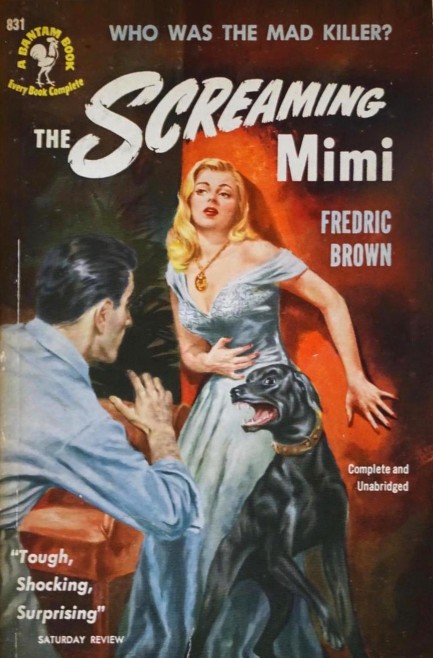 everywhere she goes, as the doctor meanwhile tries to protect her fake identity and keep her and the reporter from falling into bed together. Chances of success? Probably not very good.
everywhere she goes, as the doctor meanwhile tries to protect her fake identity and keep her and the reporter from falling into bed together. Chances of success? Probably not very good.
Screaming Mimi is an interesting noir—it was fertile enough to serve as inspiration for Dario Argento’s L’uccello dalle piume di cristallo, aka The Bird with the Crystal Plumage—but its b-movie budget really shows and we think Philip Carey is miscast as the reporter/hero. Carey has no charm at all in this, which renders Ekberg’s interest in him unbelievable. But his performance will be a treat for patrons of the Noir City fest—most will probably remember him from his twenty-four-year stint as the repulsive Asa Buchanan on the soap opera One Life To Live.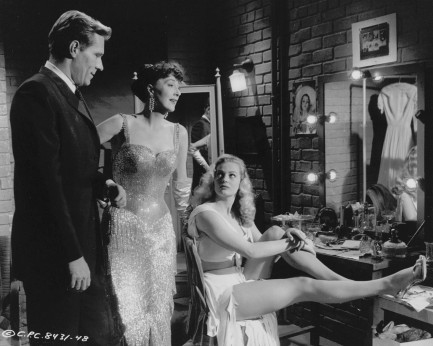
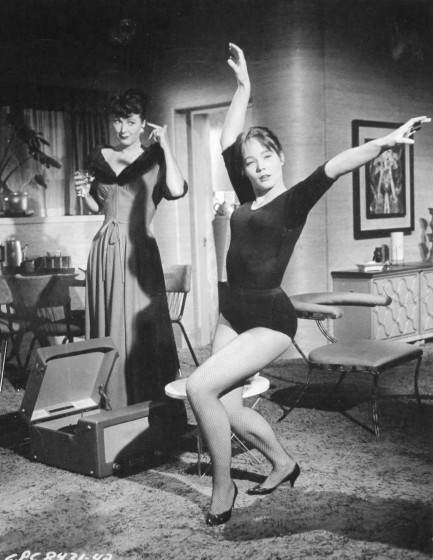
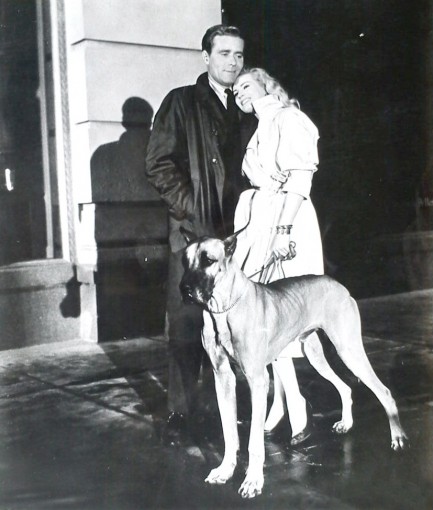
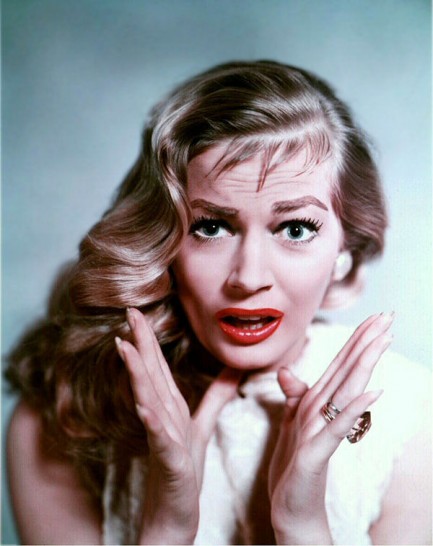
| Intl. Notebook | Jan 22 2016 |

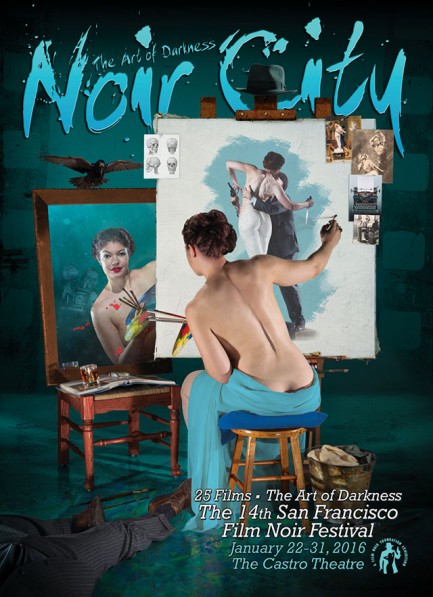
San Francisco's Noir City Film Festival remains one of the best of its type in the U.S. Its fourteenth incarnation kicks off today in San Fran with Rear Window and The Public Eye. The first isn't a noir, but fits comfortably on the festival program; the second is a sort of noir, though a newer one, and is an inspired choice, in our opinion. We just wonder whether people who pay for two films noir will be happy with those two selections on opening night. In any case, we take a peek at both films below. Other offerings this year include the Bogart vehicles The Two Mrs. Carrolls and In a Lonely Place, Screaming Mimi, Corridor of Mirrors, The Dark Corner plus more than twenty other titles, and we'll be taking a look at some of these films throughout the next week.




































































